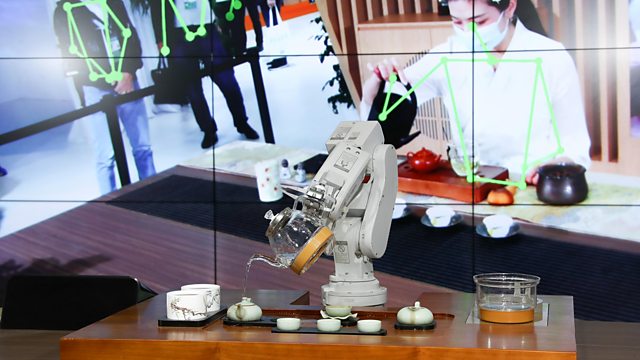Is the EU stifling AI innovation?
Europe is planning to introduce expansive regulations governing the use of artificial intelligence.
The European Commission has published draft proposals that will, if implemented, constitute the most expansive attempt to regulate the use of artificial intelligence. AI is becoming increasingly commonplace and automating jobs previously done by humans. From the algorithms that decide which social media posts to show you, to help desk chatbots capable of answering your questions, many AI applications make our lives easier and are set to receive fairly βlight touchβ regulation.
Others, such as computer programmes capable of reading thousands of CVs and drawing up a shortlist of job applicants to be interviewed, have been accused of bias and will face extra scrutiny. But under the plan some more controversial technologies could be banned altogether - such as the deployment of real-time facial recognition systems in public spaces. Some in the industry welcome clear rules of the road, but others fear that restrictions will hamstring companies and force innovators to flee.
The United States is a global leader in the development of AI and the EU hopes it will adopt similar measures. But industry figures there are warning that Europeβs proposals go too far and would, if mirrored in America, result in China gaining dominance of the sector as it develops similar capabilities - but free from many of the regulations likely in the West. So, which AIs are good, which are bad, and how should they be regulated? Ritula Shah is joined by a panel of expert guests.
Last on
More episodes
Previous
Next
Contributors
Alexandra Geese - A member of the European Parliament for The Greens in Germany and a member of the parliamentβs Special Committee on Artificial Intelligence in a Digital Age
Benjamin Mueller - A senior policy analyst at the Center for Data Innovation, a think tank based in Washington DC and Brussels
Daniel Leufer - Europe policy analyst for Access Now, an international human rights organization that campaigns for the digital rights of users around the world
Also featuring ...
Jeffrey Ding - The Centre for the Governance of AI, Future of Humanity Institute at the University of Oxford and the ChinAI newsletter
Photo
Broadcasts
- Fri 30 Apr 2021 09:06GMTΒιΆΉΤΌΕΔ World Service
- Fri 30 Apr 2021 23:06GMTΒιΆΉΤΌΕΔ World Service
- Sat 1 May 2021 03:06GMTΒιΆΉΤΌΕΔ World Service
The Real Story Podcast
Subscribe via your favourite podcast app...
Podcast
-
![]()
The Real Story
Global experts and decision makers discuss, debate and analyse a key news story.


